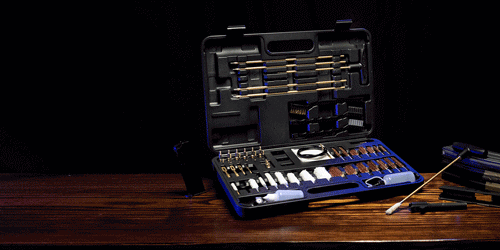Foreword
Storing firearms in a truck is a topic that raises both practical and legal considerations. Whether you’re a hunter, a tactical enthusiast, or someone who needs to transport firearms for professional reasons, it’s essential to know the rules and best practices for firearm storage in a vehicle. This article explores the feasibility, legality, and best practices for storing firearms in a truck.
Is It Legal to Store Firearms in a Truck?
The legality of storing firearms in a truck varies depending on local, state, and federal laws. Here are some general guidelines:- Check Local Laws: Some states have strict regulations regarding firearm transportation and storage. For example, some jurisdictions require firearms to be unloaded and locked in a secure case while in a vehicle.
- Compliance with Federal Law: The Firearm Owners' Protection Act (FOPA) allows individuals to transport firearms across state lines under certain conditions, such as ensuring they are unloaded and locked in a container separate from ammunition.
- Concealed Carry Permits: If you have a concealed carry permit, you may be allowed to keep a loaded firearm in your truck, depending on state laws.
- School Zones and Restricted Areas: Be aware of federal and state laws that prohibit firearms in certain areas, such as school zones, government buildings, or private properties with posted restrictions.
Best Practices for Storing Firearms in a Truck
Storing firearms in a truck requires careful planning to ensure safety, security, and compliance with laws. Here are some best practices:
Use a Secure Gun Safe
Invest in a portable or truck-mounted gun safe. These safes provide a secure storage option and can be bolted to the vehicle for added security. Look for safes that are:
- Tamper-resistant
- Lockable with a key or digital code
- Portable for easy removal
For instance, the Gloryfire Biometric Gun Safe offers three convenient ways to access your firearm: fingerprint recognition, a keypad, or a key. This versatile safe can also be mounted securely under your main driver’s seat, providing quick access while keeping your firearm concealed and protected.

Keep Firearms Unloaded
Unless legally permitted and necessary, store firearms unloaded. This reduces the risk of accidental discharge.
Separate Firearms and Ammunition
Store ammunition in a separate, locked container from the firearm. This is often required by law and adds an additional layer of safety.
Conceal the Firearm
Keep the firearm out of plain sight to avoid drawing attention. Use storage solutions like:- Under-seat compartments
- Hidden console safes
- Lockable truck bed storage
Monitor Temperature and Humidity
Extreme temperatures and humidity can damage firearms. Consider using moisture-absorbing packets or climate-controlled storage solutions to protect your firearm.
Potential Risks of Storing Firearms in a Truck
Theft: Trucks can be targeted for break-ins, especially if firearms are visible or suspected to be inside.
Environmental Damage: Prolonged exposure to heat, cold, or moisture can cause rust or mechanical issues.
Legal Liability: Failing to store a firearm securely could result in legal consequences if the firearm is stolen or misused.
Alternatives to Storing Firearms in a Truck
If you’re concerned about the risks of truck storage, consider these alternatives:- Store firearms at home in a secure gun safe.
- Use a storage facility specifically designed for firearms.
- Transport firearms only when necessary, reducing the time they spend in your vehicle






